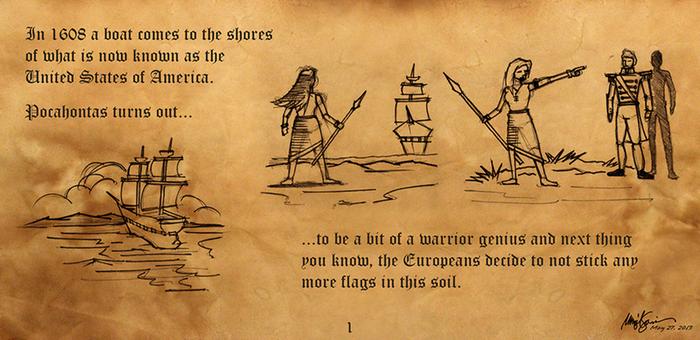








My life is a constant battle between my two loves: https://www.noharchitects.com and https://buildingfreedomtoday.com/pebblespring-farm/. Thanks for taking the time to hear my story of this mission.
 1
1








My life is a constant battle between my two loves: https://www.noharchitects.com and https://buildingfreedomtoday.com/pebblespring-farm/. Thanks for taking the time to hear my story of this mission.




 1
1




My life is a constant battle between my two loves: https://www.noharchitects.com and https://buildingfreedomtoday.com/pebblespring-farm/. Thanks for taking the time to hear my story of this mission.
 1
1




![Filename: 20150321-roosters.jpg
Description: [Thumbnail for 20150321-roosters.jpg]](/t/35216/a/29118/20150321-roosters.jpg)
![Filename: 20140922-dead-chicken.jpg
Description: [Thumbnail for 20140922-dead-chicken.jpg]](/t/35216/a/29120/20140922-dead-chicken.jpg)
My life is a constant battle between my two loves: https://www.noharchitects.com and https://buildingfreedomtoday.com/pebblespring-farm/. Thanks for taking the time to hear my story of this mission.
 1
1









My life is a constant battle between my two loves: https://www.noharchitects.com and https://buildingfreedomtoday.com/pebblespring-farm/. Thanks for taking the time to hear my story of this mission.
 1
1








My life is a constant battle between my two loves: https://www.noharchitects.com and https://buildingfreedomtoday.com/pebblespring-farm/. Thanks for taking the time to hear my story of this mission.




My life is a constant battle between my two loves: https://www.noharchitects.com and https://buildingfreedomtoday.com/pebblespring-farm/. Thanks for taking the time to hear my story of this mission.
 1
1




![Filename: 16-june-2012.jpg
Description: [Thumbnail for 16-june-2012.jpg]](/t/35216/a/29470/16-june-2012.jpg)
My life is a constant battle between my two loves: https://www.noharchitects.com and https://buildingfreedomtoday.com/pebblespring-farm/. Thanks for taking the time to hear my story of this mission.
 1
1




![Filename: bushbuck.png
Description: [Thumbnail for bushbuck.png]](/t/35216/a/29935/bushbuck.png)
![Filename: 24-June-2013.jpg
Description: [Thumbnail for 24-June-2013.jpg]](/t/35216/a/29936/24-June-2013.jpg)
My life is a constant battle between my two loves: https://www.noharchitects.com and https://buildingfreedomtoday.com/pebblespring-farm/. Thanks for taking the time to hear my story of this mission.








My life is a constant battle between my two loves: https://www.noharchitects.com and https://buildingfreedomtoday.com/pebblespring-farm/. Thanks for taking the time to hear my story of this mission.








My life is a constant battle between my two loves: https://www.noharchitects.com and https://buildingfreedomtoday.com/pebblespring-farm/. Thanks for taking the time to hear my story of this mission.




My life is a constant battle between my two loves: https://www.noharchitects.com and https://buildingfreedomtoday.com/pebblespring-farm/. Thanks for taking the time to hear my story of this mission.








My life is a constant battle between my two loves: https://www.noharchitects.com and https://buildingfreedomtoday.com/pebblespring-farm/. Thanks for taking the time to hear my story of this mission.








My life is a constant battle between my two loves: https://www.noharchitects.com and https://buildingfreedomtoday.com/pebblespring-farm/. Thanks for taking the time to hear my story of this mission.




My life is a constant battle between my two loves: https://www.noharchitects.com and https://buildingfreedomtoday.com/pebblespring-farm/. Thanks for taking the time to hear my story of this mission.




![Filename: 21-october-2011.jpg
Description: [Thumbnail for 21-october-2011.jpg]](/t/35216/a/31641/21-october-2011.jpg)
![Filename: 4-december-2011b.jpg
Description: [Thumbnail for 4-december-2011b.jpg]](/t/35216/a/31643/4-december-2011b.jpg)
My life is a constant battle between my two loves: https://www.noharchitects.com and https://buildingfreedomtoday.com/pebblespring-farm/. Thanks for taking the time to hear my story of this mission.
 1
1








My life is a constant battle between my two loves: https://www.noharchitects.com and https://buildingfreedomtoday.com/pebblespring-farm/. Thanks for taking the time to hear my story of this mission.








![Filename: 16-june-2012b.jpg
Description: [Thumbnail for 16-june-2012b.jpg]](/t/35216/a/31760/16-june-2012b.jpg)
My life is a constant battle between my two loves: https://www.noharchitects.com and https://buildingfreedomtoday.com/pebblespring-farm/. Thanks for taking the time to hear my story of this mission.
 1
1




My life is a constant battle between my two loves: https://www.noharchitects.com and https://buildingfreedomtoday.com/pebblespring-farm/. Thanks for taking the time to hear my story of this mission.




![Filename: 1.jpg
Description: [Thumbnail for 1.jpg]](/t/35216/a/32586/1.jpg)
![Filename: 2.jpg
Description: [Thumbnail for 2.jpg]](/t/35216/a/32587/2.jpg)
My life is a constant battle between my two loves: https://www.noharchitects.com and https://buildingfreedomtoday.com/pebblespring-farm/. Thanks for taking the time to hear my story of this mission.




![Filename: 24-august-2013.jpg
Description: [Thumbnail for 24-august-2013.jpg]](/t/35216/a/32857/24-august-2013.jpg)
My life is a constant battle between my two loves: https://www.noharchitects.com and https://buildingfreedomtoday.com/pebblespring-farm/. Thanks for taking the time to hear my story of this mission.




![Filename: 20141109-quadbike.jpg
Description: [Thumbnail for 20141109-quadbike.jpg]](/t/35216/a/33091/20141109-quadbike.jpg)
My life is a constant battle between my two loves: https://www.noharchitects.com and https://buildingfreedomtoday.com/pebblespring-farm/. Thanks for taking the time to hear my story of this mission.




![Filename: 10-november-2011.jpg
Description: Venda hen or her eggs [Thumbnail for 10-november-2011.jpg]](/t/35216/a/33302/10-november-2011.jpg)
My life is a constant battle between my two loves: https://www.noharchitects.com and https://buildingfreedomtoday.com/pebblespring-farm/. Thanks for taking the time to hear my story of this mission.




My life is a constant battle between my two loves: https://www.noharchitects.com and https://buildingfreedomtoday.com/pebblespring-farm/. Thanks for taking the time to hear my story of this mission.








My life is a constant battle between my two loves: https://www.noharchitects.com and https://buildingfreedomtoday.com/pebblespring-farm/. Thanks for taking the time to hear my story of this mission.








My life is a constant battle between my two loves: https://www.noharchitects.com and https://buildingfreedomtoday.com/pebblespring-farm/. Thanks for taking the time to hear my story of this mission.

|
Goodbye moon men. Hello tiny ad:
The new purple deck of permaculture playing cards
https://www.kickstarter.com/projects/paulwheaton/garden-cards
|





